House of M is yet another in a long line of mini-series/events Marvel produced in the early-to-mid 2000s that was off my radar thanks in large part to the fact that I had only JUST started to get back into buying monthly Spider-Man comic books at the same time (you can reference my Marvel Knights: Spider-Man and New Avengers #1-6 posts for additional context into this time of my life).
While this mini is far from a “Spider-Man story,” of all of Marvel’s big events from this timeframe, save “Civil War,” House of M probably presents the most interesting interpretation of Spidey which is then fleshed out even more by the corresponding Mark Waid, Tom Peyer and Salvador Larroca Spider-Man: House of M five-parter. The premise of House of M is that Scarlet Witch goes crackers and creates a new reality that affects the entire Marvel universe and presents the mother of all “what ifs” for my favorite superhero: what if Uncle Ben and Gwen had lived, Spider-Man was revered as a hero, and the world thought Spidey was a mutant (in a world where mutants were loved rather than feared).
As a whole, House of M is similar to some of the more recent Brian Michael Bendis events that present broad ideas that are interesting on the surface, but are inconsistently paced to the point that it detracts from the story. For example, the first issue of the series ends with Spider-Man being engulfed in a white light and then waking up in bed next to a beautiful blonde that I only figured was Gwen Stacy based on what I had read about House of M prior to sitting down and reading the actual comics.
The main series doesn’t actually return to Spider-Man/Peter’s story until many issues later. Yes, the Spider-Man: House of M mini goes above and beyond in explaining how the Scarlet Witch’s new reality impacts Peter, but this lack of story progression in the main book encapsulates one of the general frustrations I have with the comic book industry as a whole – why can’t a big idea just be explained within the series where it is first introduced? I understand that panel space is limited in an eight-part series but it’s completely disingenuous to end on such an ambiguously shocking note as House of M #1 does for it only to be explained in a separate mini-series. And House of M is surely not the only comic book series to suffer from this phenomenon.
Peter’s new world reflects his heart’s desires: his Spider-Man identity is publicly known and the source of his popularity, along with the belief that he is a mutant and has had his powers from birth. He’s married to Gwen, the two have a son together and Peter’s Uncle Ben and Gwen’s father Captain Stacy are still alive and play an integral role in their lives. Rhino is his bodyguard and J. Jonah Jameson as his personal whipping mule. Peter still has his enemies, and one of them is Norman Osborn, who also happens to be one of Spidey’s greatest adversaries in the “real” world, but for those Spider-Man fans who have long wanted to see things go right for Peter Parker, this is the series to find that timeline of events.
Of course, like every other Spider-Man story, Peter’s good luck is always finite and between the House of M main series and the Spidey-centric mini, readers get two different stories of heartbreak, both presented with equally well crafted devastation by their respective creators. In House of M, I found myself actually gasping for air when I got to the section where Peter regains his memory and is forced to realize that the world he is currently living in is fake. Artist Olivier Coipel captures this moment beautifully. While I think everyone knew the Scarlet Witch’s new status quo wouldn’t last, watching it get ripped from Peter like that was so painful. I think the only other hero I sympathized as much with in this series is Hawkeye, who has to deal with the fact that he was dead in the “real” world.
While I sympathized with Peter in the House of M main series, the Spider-Man: House of M mini does a great job demonstrating that in a world where Uncle Ben lives and there’s no “with great power must come great responsibility” epiphany, Spidey is a pretty unlikeable guy. Sure, I’m happy to see Peter happy for a change, especially after all the misery he’s experienced in the “new” universe, but the House of M version of Spidey is arrogant, cocky and demeaning to his friends and colleagues.
When a vengeful J. Jonah Jameson discovers Peter’s journal which contains all of his secrets – in a parallel timeline, he’s not a mutant and his “wife,” uncle and father-in-law are all dead – there’s a moment where I almost feel that Peter is deserving of the anguish that’s rained down upon him. But just as Uncle Ben’s death in the real world inspired Peter to be a much better person (remember, this is the guy who on the cover of Amazing Fantasy #15 was going to “show the world” what he was about), this world-shattering moment in the House of M-verse is an eye opener for him. The mini-series ends on a very quiet, serenity-filled moment of Peter and the family living in isolation by a lake. It almost gives the reader an impression of a “happily ever after,” for Peter until you realize that this entire world gets flipped on its ear in the House of M main story.
As for how Peter’s idealized world is presented by both series, I honestly can’t argue much about it. House of M will surely add fuel to the “Gwen vs. Mary Jane” debate that fans have from time to time, and while I ultimately value MJ as the “true” love of Peter, Gwen was absolutely his first love and at the time of her introduction, was more of a match for him. I think even when taking into account his successful, long-standing (pre-Mephisto) marriage with Mary Jane, Peter has always held onto how his innocence was lost once Gwen was killed. Gwen’s death was also a watershed moment for MJ and she probably would have never become the level-headed, non-commitment-phobe she became once she made the conscious choice to be there for her friend in Amazing Spider-Man #122.
The premise that Spider-Man is actually a “mutant” is one that’s been kicked around a ton over the years (including in this Amazing Spider-Man X-Factor crossover I tackled a few weeks ago) and tends to get more play in the Ultimate Spider-Man series (also written by Bendis). It’s interesting to consider Peter’s logic in having his powers be inherent and from birth in this “ideal” world versus being acquired by outside means in the “real” world. Peter’s spider powers clearly don’t burden him as much in the House of M-verse but that has as much to do with the fact that he’s idolized for being Spider-Man, rather than being vilified for it. By the end of the Spider-Man: House of M mini-series, Peter still comes to the conclusion of “with great power must come great responsibility,” regardless of how his great powers were acquired. It almost makes me wonder if the mutant “angle” was used by both creative teams here just as a device to eventually pull the rug out from under Peter, rather than make some kind deeper statement about such a distinction would alter his characterization from world to world.
All images from House of M #1-8 & and Spider-Man House of M #1-5: Brian Michael Bendis, Olivier Coipel & Tim Townsend (House of m); Mark Waid, Tom Peyer, Salvador Larroca & Danny Miki (Spider-Man: House of M)

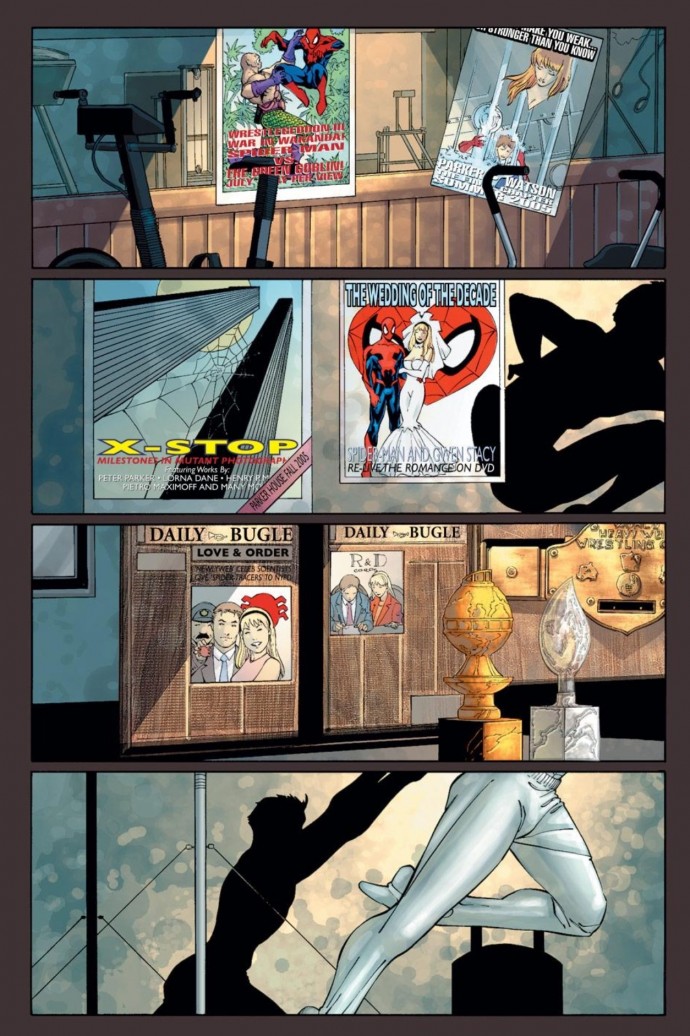
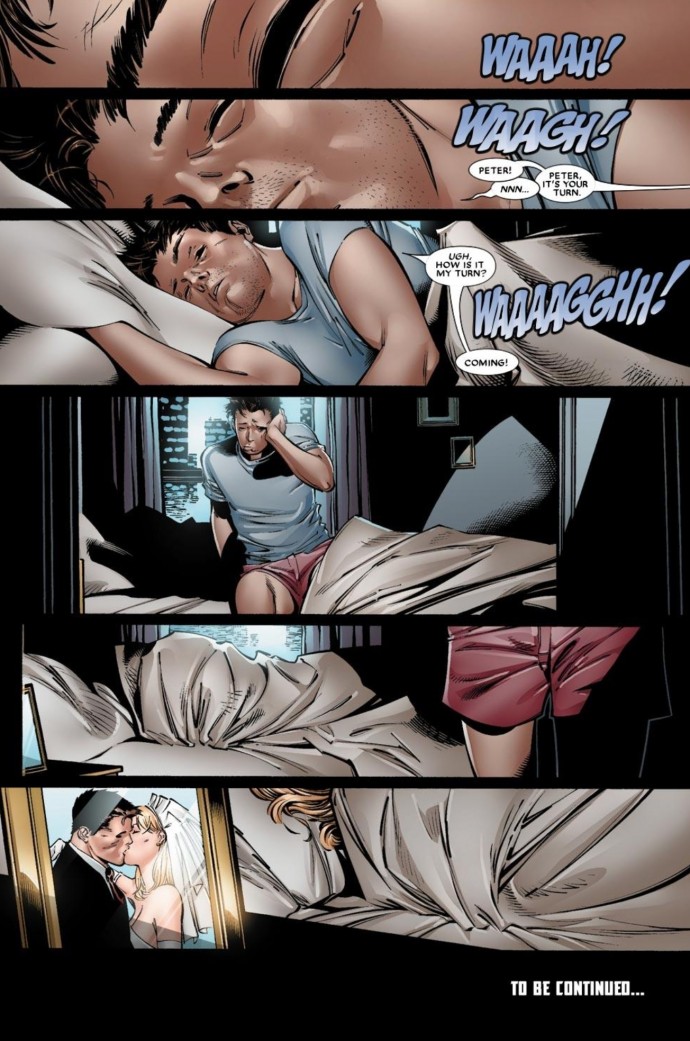
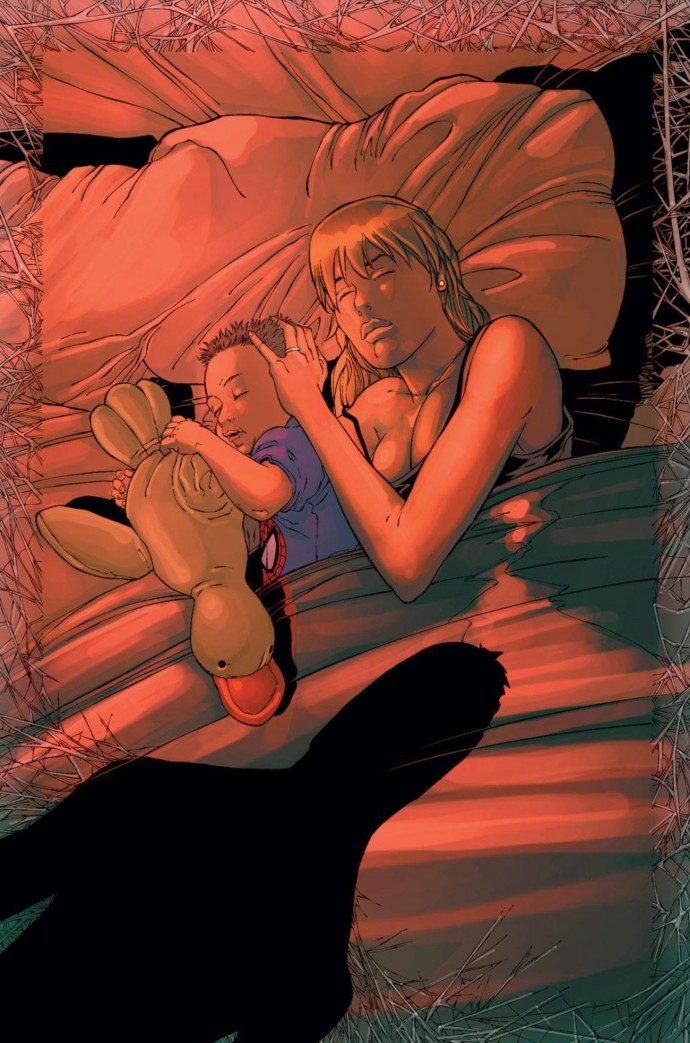
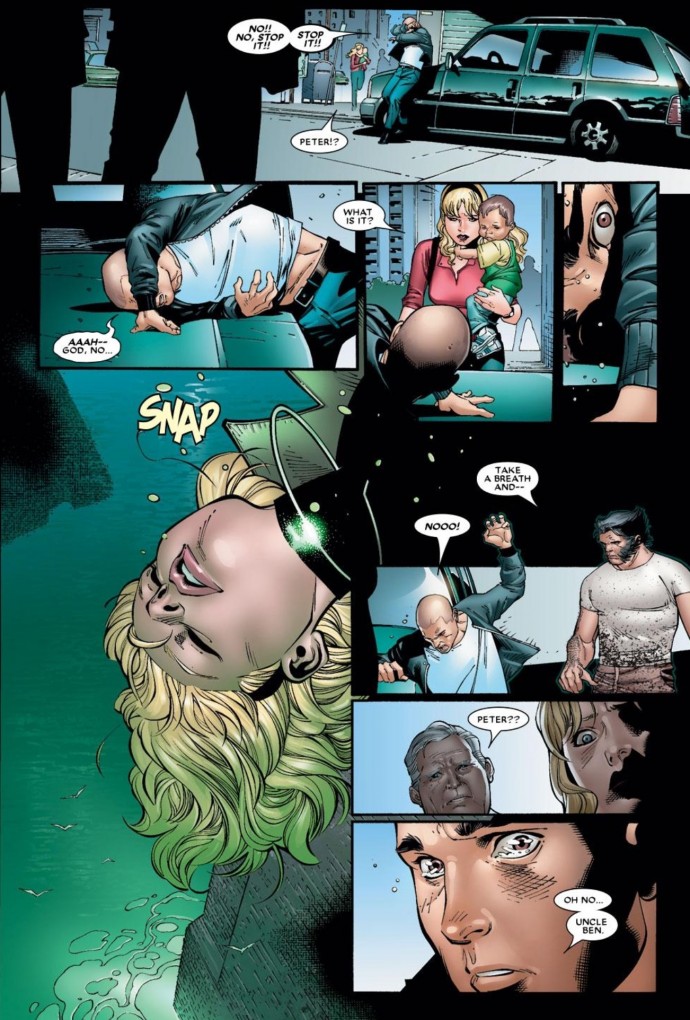
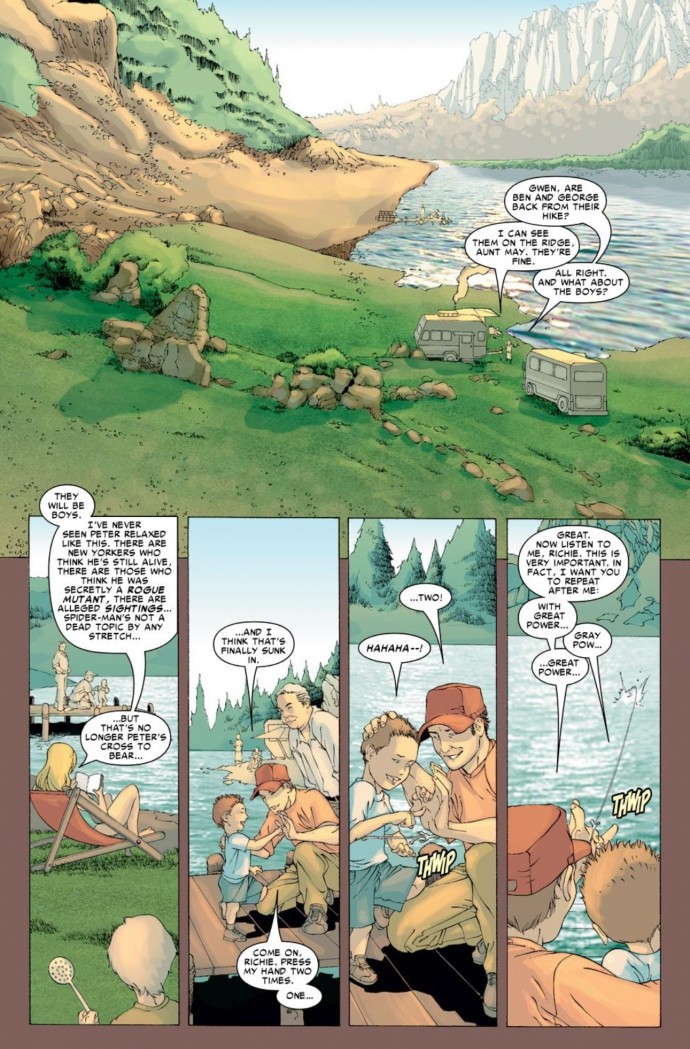
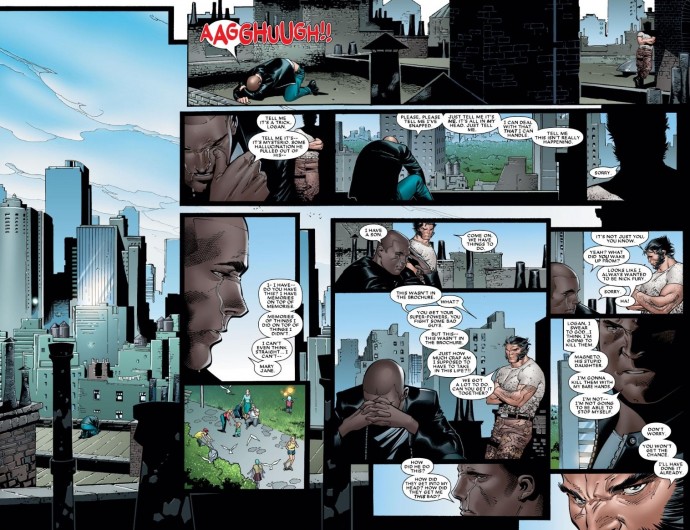

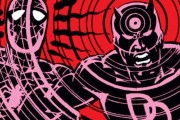
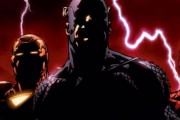
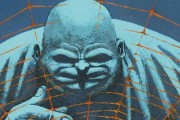
Thanks for mentioning this, though tbh, it was enough that I was able to enjoy it. Nowhere near as good as Red Son by DC Comics, but interesting though.